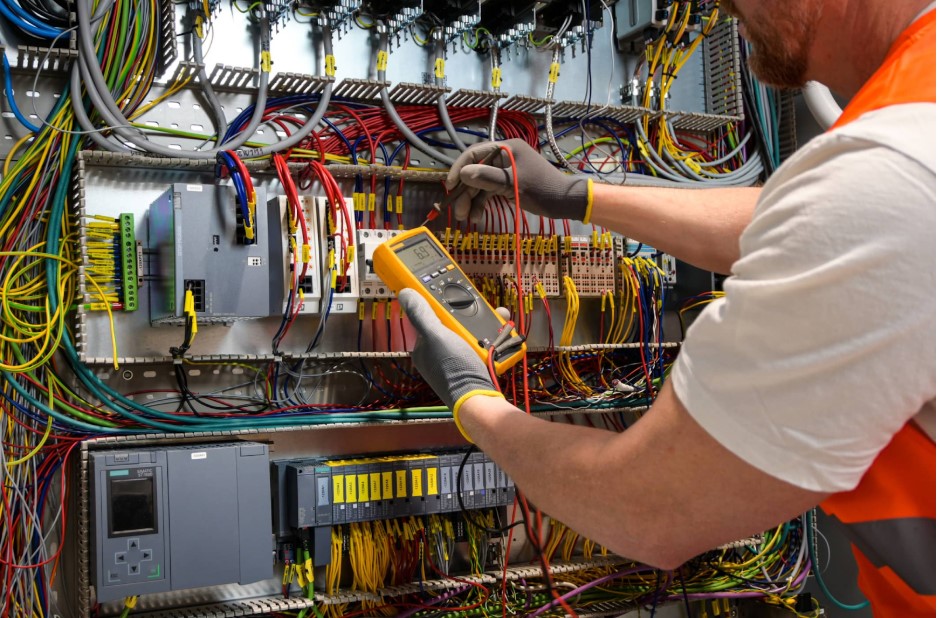Kickstart Your Career: Why HVAC and Electrical Trade School is the Path to a Successful Future

As industries evolve and new technologies emerge, the demand for skilled professionals in trades like HVAC (Heating, Ventilation, and Air Conditioning) and electrical systems continues to grow. If you're considering your career options, enrolling in a trade school can provide the perfect foundation for a successful, rewarding future. This article explores the benefits of choosing an HVAC and electrical trade school, the opportunities it opens up, and why this path is a smart investment in your future.
The Demand for Skilled Tradespeople
The HVAC and electrical industries are essential to nearly every sector, from residential buildings to large commercial projects. As cities expand, energy efficiency becomes a priority, and new technologies continue to develop, the demand for highly skilled technicians in these fields is expected to rise. According to the U.S. Bureau of Labor Statistics, both HVAC technicians and electricians can expect steady job growth over the next decade.
By attending a trade school, you position yourself to meet this demand, gaining hands-on experience and specialized knowledge that can make you highly sought after in the workforce.
Why Choose Trade School Over a Traditional College?
While traditional college offers a broad academic education, trade schools focus on practical, career-oriented skills that can be applied immediately in the workplace. This makes trade school an excellent option for those who want to enter the workforce quickly without the long time commitment and high costs associated with a four-year degree. In addition, trade schools often have industry partnerships and apprenticeship programs that allow students to gain real-world experience while they learn, further enhancing their employability upon graduation.
In comparison to a traditional college, trade schools provide focused, industry-specific training that gives students a direct path to a fulfilling career in HVAC or electrical work.
Hands-On Learning and Specialized Skills
One of the greatest advantages of enrolling in an HVAC and electrical trade school is the hands-on training you will receive. Trade schools offer specialized programs that blend classroom learning with real-world practice, giving you the tools to work on actual systems and equipment. This combination of theory and practice ensures that you’re not just learning concepts but gaining the technical proficiency required to succeed on the job.
For HVAC students, this may include learning about refrigeration cycles, ductwork design, and system installations. For electrical students, training can cover wiring, circuit design, and troubleshooting. This practical experience prepares students to handle the challenges they will face in the field, making them job-ready immediately after graduation.
Career Opportunities and Earning Potential
A trade school education in HVAC or electrical systems can lead to a wide variety of career opportunities. Many graduates go on to work for established companies, while others may start their own businesses. Some of the common career paths include:
HVAC Technician – Install, maintain, and repair heating, cooling, and ventilation systems.
Electrician – Install and maintain electrical wiring, systems, and equipment for residential, commercial, and industrial clients.
Maintenance Technician – Perform routine maintenance and repairs on HVAC and electrical systems to ensure their optimal performance.
The earning potential in these fields is also appealing. HVAC and electrical technicians often earn competitive wages, with salaries increasing as experience and certifications are gained. Additionally, opportunities for advancement and specialization, such as becoming a licensed contractor or master technician, can further increase earning potential.
Flexible Learning Options
Many trade schools offer flexible learning schedules, including evening and weekend classes, making it easier to balance education with other life commitments. Some schools even provide online courses, allowing students to complete coursework from the comfort of their home, with practical labs conducted in-person.
This flexibility ensures that aspiring HVAC and electrical professionals can receive the education they need while maintaining a work-life balance.
Conclusion
Enrolling in an HVAC and electrical trade school offers a practical, efficient route to a rewarding career. With hands-on training, industry-specific skills, and strong career prospects, trade school provides a clear pathway to success. By choosing to invest in your future through a trade school, you are positioning yourself to meet the growing demand for skilled workers in these vital industries. Whether you're looking for job stability, high earning potential, or the opportunity to start your own business, an HVAC and electrical trade school is a smart choice for anyone ready to kickstart their career.
Note: IndiBlogHub features both user-submitted and editorial content. We do not verify third-party contributions. Read our Disclaimer and Privacy Policyfor details.







